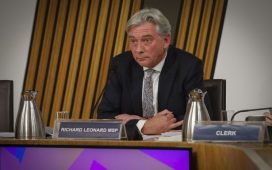Rural inhabitants risk becoming “second-class” citizens in the digital revolution as urban dwellers benefit from next-generation broadband and 5G mobile, MPs have said.
The report by the Commons environment, food and rural affairs select committee said that the government has failed to grasp the extent of the digital divide in the provision of broadband and mobile services.
Almost 600,000 “forgotten homes” in rural areas across the UK are still unable to get sufficiently fast broadband to meet a typical family’s needs – from watching Netflix to browsing YouTube.
In England and Wales 6.6% of premises do not receive the 10Mbps internet service the government has mandated as the bare minimum to cover a family’s modern digital needs, compared with just 0.7% in cities and towns. In Scotland, 19% of homes in rural areas don’t get decent internet while in Northern Ireland the figure stands at about 15%.
“Digital connectivity is now regarded by many as an essential utility, with many in rural areas struggling to live a modern lifestyle without it,” said Neil Parish, the chairman of the committee. “Poor broadband and mobile data services continue to marginalise rural communities, particularly those in hard to reach areas.”
The report said that the government’s target of a 10Mbps internet service as a bare minimum to cover modern digital needs lets down rural families as new technologies and demand for internet services makes such a speed inadequate and obsolete.
The introduction of next-generation broadband, known as full-fibre networks, and 5G mobile could increase the digital divide as companies focus on urban areas, where rollout costs are lower and profits higher.
Almost 9% of rural areas in the UK have no 4G coverage, and almost 6% have no voice or text coverage from any mobile operator.
“On the eve of 5G mobile data services, people in rural areas will increasingly feel like second-class citizens, if they can’t access 4G or even 3G services,” said Parish. “It is imperative that this problem is resolved and that rural communities are granted the same digital access as the majority of their urban counterparts.”
The report also questioned whether Boris Johnson’s pledge to deliver full-fibre broadband to every UK household by 2025 was realistic. Johnson, who said his initiative could “unite our country”, has called the previous government target of 2033 as “laughably unambitious”.
“We welcomed the prime minister’s commitment to achieve universal full-fibre broadband by 2025,” said Parish. “However, the committee is not confident that the government has fully grasped the scale of the challenge currently faced and is sceptical as to whether it will meet these ambitious new targets without considerable and potentially controversial reforms.”
The UK is a global broadband laggard, with full-fibre services available in just 8% of UK homes. In Portugal and Spain the figure stands at more than 80% of homes.














